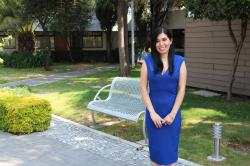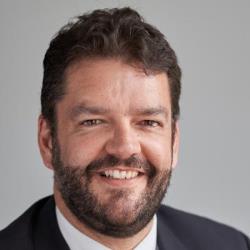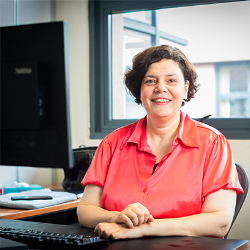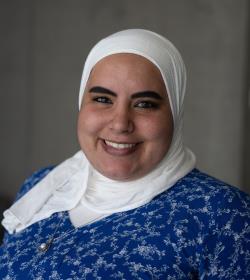The future of Digital Public Infrastructure for environmental sustainability
United Nations Environment Programme
Session 456
This session aims to spark meaningful dialogue and collaboration amongst experts, policymakers, and international organizations. It will focus on integrating diverse perspectives and expertise on the potential of DPI for national agendas and explore its future role in supporting environmental sustainability decisions. The session will include:
- Showcasing UNEP’s proposal for data exchange systems as DPI, focusing on six technology innovations;
- Identifying priority areas to advance DPI for environmental sustainability at the national and global level;
- Aligning efforts to enhance the effectiveness of DPI for environmental sustainability.

Rowan Palmer is a Programme Management Officer at UNEP’s Resources and Markets Branch in Geneva, where he leads the Sustainable Infrastructure Partnership and coordinates UNEP’s implementation of UNEA Resolution 4/5 on sustainable infrastructure. Prior to joining UNEP Rowan worked as an environmental manager for large-scale transportation infrastructure projects in his home province of British Columbia, Canada. Rowan holds a Bachelor’s degree in International Development and Environment Studies from McGill University in Montreal and a Master’s degree in International Relations from Instituto de Empresa in Madrid.
.jpg?maxwidth=250)
Robert Opp is currently the Chief Digital Officer of UNDP, the United Nations’ global sustainable development organization working across 170 countries globally with more than 17,000 staff. He leads the agency’s digital transformation, an organization-wide effort, to harness the power of new technology to improve the lives of those furthest behind.
Prior to this role, Robert served as Director of the Innovation and Change Management Division within the United Nations World Food Programme (WFP) where he established an in-house ‘Zero Hunger’ innovation accelerator and created an award-winning crowdfunding smartphone app, ShareTheMeal which has raised over US$40 million for hunger programmes.

Ana Gabriela Fernández Vergara is a consultant with the Economic and Trade Policy Unit Economy Division of the United Nations Environment Programme (UNEP), supporting the Partnership for Action on Green Economy (PAGE) and the Sustainable Infrastructure Partnership (SIP). Before joining UNEP, she worked as a law clerk at the Mexican Supreme Court, a legal adviser at an environmental consulting firm and a trainee international lawyer at the Permanent Mission of Mexico to the United Nations and other international organizations in Geneva. Vergara holds a BA in Law, an MA in Economic Law and an LLM in International Law from the Graduate Institute of International and Development Studies.

Kurt Stockinger is a professor of Computer Science and Head of MAS Data Science at the Zurich University of Applied Sciences. Kurt received the Ph.D. degree in computer science from CERN, University of Vienna. His main research focus is at the intersection of information systems, natural language processing and machine learning. More specific topics are: Data Science, Big Data, Natural Language Query Processing, Question Answering over Knowledge Graphs, Machine Learning for Information Systems, Quantum Machine Learning

David Jensen is the Regional Subprogramme Coordinator of the Digital Transformation Programme for the United Nations Environment Programme (UNEP), covering the North America and the pan-European Regions. From 2009 to 2019, David has been a leader in a global effort to establish a new multidisciplinary field of environmental peacebuilding. David has been pioneering efforts to identify environmental applications of frontier technologies in conflict-affected countries and fragile states, including big data, cloud computing, artificial intelligence, the internet of things, block chain, virtual reality, and citizen science. He has been advising the UN Science-Policy-Business Forum on the Environment on these topics since 2018 and was the co-author of a flagship discussion paper entitled The Case for a Digital Ecosystem for the Environment.
David holds an M.Sc. in Biology from Oxford University (UK) and an undergraduate degree in Geography from the University of Victoria (Canada). He is an Alumnus of the Peace Mediation Platform (Swiss Federal Department of Foreign Affairs) and a Beahrs’ Environmental Leadership Fellow at the University of California, Berkeley. He was also certified as a Project Management Professional (PMP).

Golestan (Sally) Radwan (B.Sc., MBA, M.Sc.) is a Computer Scientist with expertise in AI and emerging technologies. Prior to UNEP, Sally served as Advisor to the Egyptian Minister of ICT, where she led the development and implementation of Egypt’s national AI strategy. During this time, she served as an expert and delegate of Egypt to several international organizations working on AI Policy and Regulation including UNESCO, WIPO, ITU, and OECD. She also championed and led two working groups within the African Union and League of Arab States to unify regional efforts around Responsible AI. Sally previously held several executive positions in the technology industry over 17 years, working in Germany, Austria, the UK and the US for companies including Novell GmbH, Avaya Inc. and NTT Data Europe. She earned a B.Sc. in Computer Engineering from Cairo University and an MBA from London Business School, as well as an MSc in Clinical Engineering and Healthcare Technology Management from City University of London. She is currently finalizing her PhD thesis, focusing on AI explainability and its ethical considerations in metagenomics at the Royal Holloway University of London.

Menna El-Assady is a computer scientist working at the intersection of data analysis, visualization, computational linguistics, and explainable artificial intelligence. Menna is passionate about interdisciplinary research, as it continually provides an opportunity to broaden our horizons beyond disciplinary boundaries. Specifically, she is interested in advancing responsible data-driven decision-making through human-centered analytics, as well as interactive and explainable machine learning.

Yolanda Martínez is a Digital Development Expert currently serving as the overall lead of the GovStack Initiative at the International Telecommunications Union where she collaborates with governments in accelerating the digital transformation of their services using standard-based, reusable digital public infrastructure/building blocks. Within the public domain, Yolanda spearheaded Mexico’s National Digital Strategy, oversaw the Digital Government Unit at the Federal Level, and directed the Zapopan Digital City Program at the municipal level. In the private sector, while at Deloitte Consulting, she championed numerous digital transformation projects. On the international front, Yolanda headed the Office of the Inter-American Development Bank (IDB) in Chile. She partnered with United Nations agencies and the OECD to peer review the digital government strategies across various Latin American countries. @political has recognized Yolanda as one of the top twenty most influential people in digital government. She earned her Ph.D. in information and knowledge society from the Open University of Catalonia (UOC) and her Master’s from Carnegie Mellon University.

Noémie Bürkl leads the Digitalisation division at the Federal Ministry for Economic Cooperation and Development (BMZ) in Berlin since February 2023. Previously she served as the deputy head of division for Multilateral Policy, co-headed the German-Bilateral Cooperation at the German Embassy in Cairo, and worked as a senior policy officer at the Federal Foreign Office as well as a technical program officer at the International Organization for Migration. She studied International and European Relations in France and Canada and completed a master’s degree in international economics and politics in Prague.
-
 C1. The role of governments and all stakeholders in the promotion of ICTs for development
C1. The role of governments and all stakeholders in the promotion of ICTs for development
-
 C2. Information and communication infrastructure
C2. Information and communication infrastructure
-
 C3. Access to information and knowledge
C3. Access to information and knowledge
-
 C6. Enabling environment
C6. Enabling environment
-
 Goal 2: End hunger, achieve food security and improved nutrition and promote sustainable agriculture
Goal 2: End hunger, achieve food security and improved nutrition and promote sustainable agriculture
-
 Goal 9: Build resilient infrastructure, promote sustainable industrialization and foster innovation
Goal 9: Build resilient infrastructure, promote sustainable industrialization and foster innovation
-
 Goal 10: Reduce inequality within and among countries
Goal 10: Reduce inequality within and among countries
-
 Goal 12: Ensure sustainable consumption and production patterns
Goal 12: Ensure sustainable consumption and production patterns
-
 Goal 13: Take urgent action to combat climate change and its impacts
Goal 13: Take urgent action to combat climate change and its impacts
-
 Goal 15: Sustainably manage forests, combat desertification, halt and reverse land degradation, halt biodiversity loss
Goal 15: Sustainably manage forests, combat desertification, halt and reverse land degradation, halt biodiversity loss
https://wedocs.unep.org/handle/20.500.11822/45181;jsessionid=E29B71325CE8D57A18E8A7DB0FD6A71D